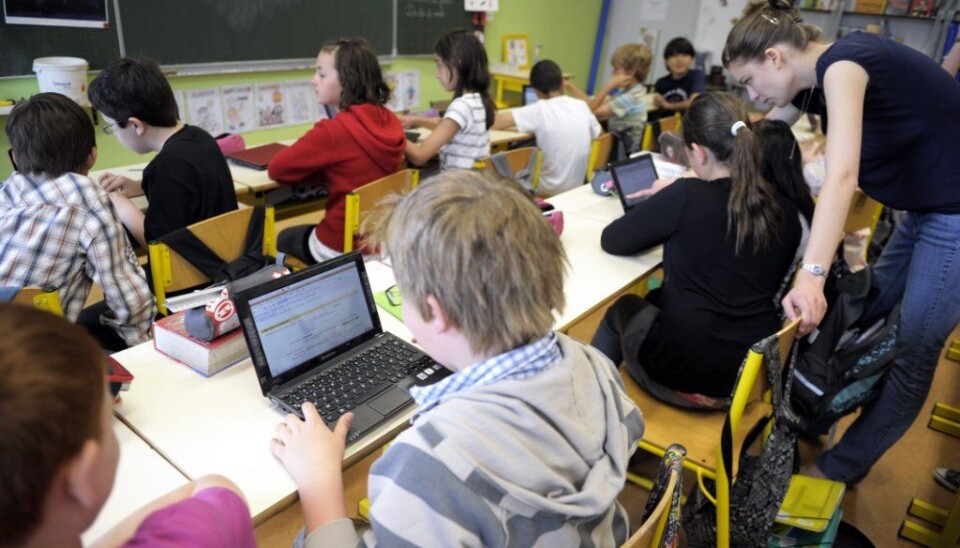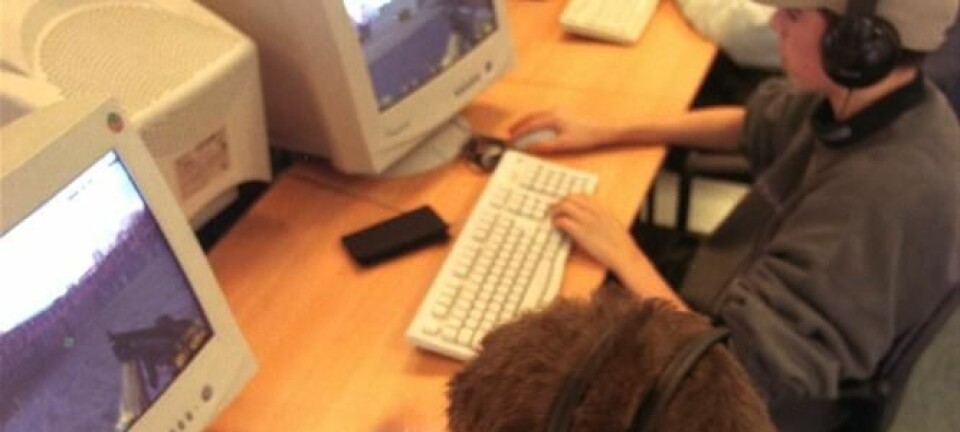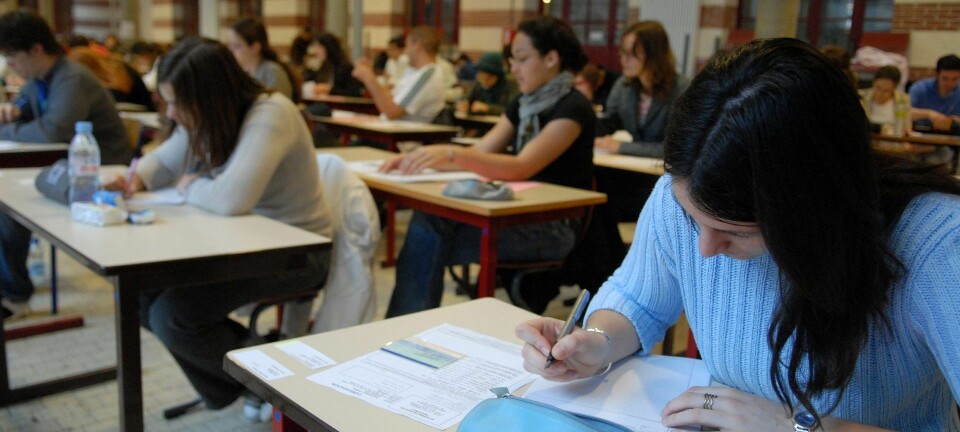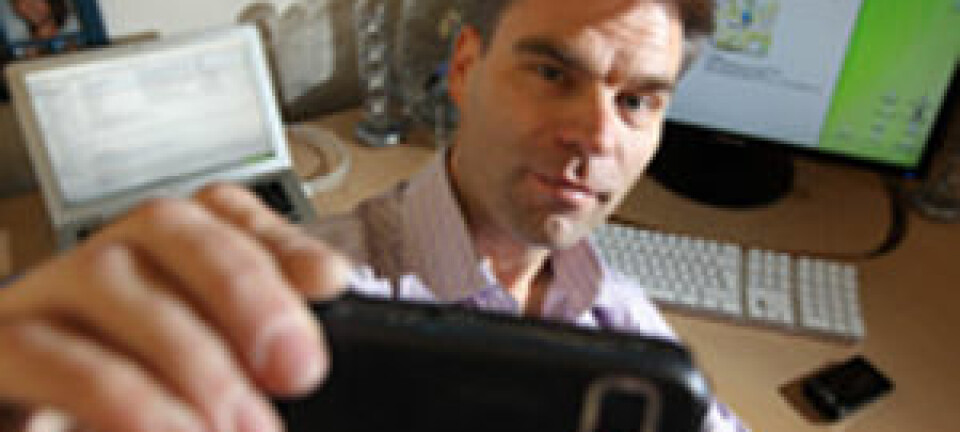
Thief of time conquering the classroom
PCs, tablets and smartphones are demonstrably useful aids in schools, but they can also undermine educational results, especially among weaker pupils.
Denne artikkelen er over ti år gammel og kan inneholde utdatert informasjon.
PC tablets and other digital educational tools are popular because they offer teachers and their students a multitude of opportunities. But researchers at the University of Bergen (UiB) are concerned about certain aspects of these tools.
They conducted a study earlier this year to find out what educational gains school kids were getting from information and communications technology (ICT). They discovered that most of the pupils were spending school hours using computers for something other than learning.
When the kids had access to the Internet, they spent a third of their time on average on Facebook or gaming and other distractions.
One in ten pupils lost control completely and spent nearly all their time wasting time instead of studying. The researchers observed pupils who used the tools for serious educational purposes only during the short intervals when the teacher paid attention to them. As soon as the teacher turned away, they were back to their games again.
The weakest pupils wasted most time

Professor Rune Krumsvik of UiB, who led the study, says academically weaker students were the ones who wasted the most time in this way.
The weak pupils spend more time on the devices and have less control of how they use the technology. They have what could be designated an unhealthy digital lifestyle that affects their school habits.
“The pupils’ digital lifestyles impinge on classrooms and hurt the weakest groups of kids. We need to help these pupils use ICT in a better way. Otherwise we’ll be seeing a widening digital divide between the groups of pupils,” he says.
Digital proficiency
How can we make sure that the tools are used the way they should be? Krumsvik thinks it’s a question of enhancing the pupils’ digital competency.

“We see that today’s pupils master and enjoy using PCs. But they should develop more proficiency and good judgement in order to get full benefit of the technology,” he says.
It’s a matter of instruction and guidance. The teacher also has to lead by example.
“They have to be good role models,” says Krumsvik.
The educators need to improve in digital leadership. They have to set limitations on the use of technology so their pupils can concentrate on other things.
“They also have to exploit the positive aspects found in social media, games, etc. This technology makes it possible to get closer to the pupils and create a more engaging educational environment,” says Krumsvik.
“Leadership skills and educationally based digital competence are essential tools. Teachers have to know how to use the technology to augment benefits gained by their pupils,” he says
Attention training
Sociologist Ivar Vehler has lots of experience in teaching people how to improve their attention spans. In his professional capacity he’s helped students, soccer players and combat jet pilots to hone their daily skills.
Vehler is concerned about modern developments in the classroom.
He thinks problems run deeper and require more drastic countermeasures than improving the abilities and attitudes of school children.
“Many brain researchers think that use of mobile phones results in physiological changes in the brain. These changes make us dependent upon receiving a high rate of impulses. Some go so far as to call it ‘digital ADHD’. That means we need to do more than to force ourselves to buckle down or pull ourselves together,” he says.
Remove the impulses
Vahler thinks this problem will simply be compounded if schools indiscriminately follow digital trends.
“Educational games and social media can increase learning in certain subjects, but they can also cause pupils to have even greater problems tackling assignments that demand quiet concentration.”
He thinks educators have to dig deeper into the problem to help students stop wasting time in the classroom.
“Now and then we need to remove the stream of impulses and replace them with other impressions. And then we need to teach kids to cope without all these impulses, by taking them outside or using meditation techniques.”
“That will make it easier for them to become aware of what is happening, so that they get a real opportunity to free themselves from the digital onslaught,” he says.
-----------------------------
Read the Norwegian version of this article at forskning.no
Translated by: Glenn Ostling



































